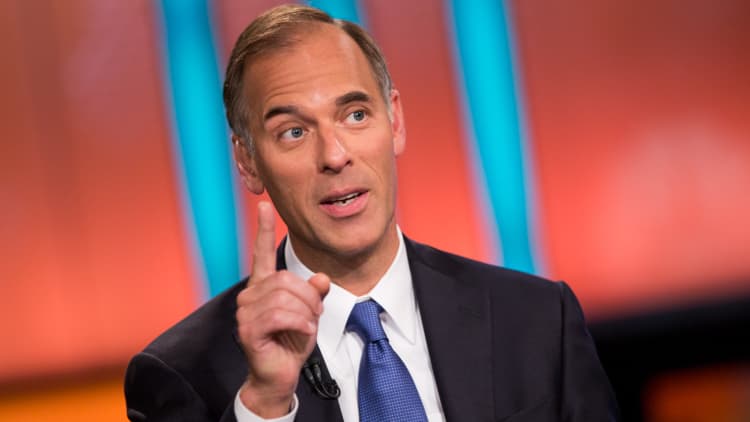
Economist Mark Zandi has a new take about the state of the economy under Donald Trump, believing that both the president's supporters and opponents have it wrong.
During the presidential campaign, Zandi, chief economist at Moody's Analytics, warned that a Trump presidency would cause a "lengthy recession." In addition to the recession, Zandi and his team figured that the Republican's policies would result in 3.5 million fewer jobs and an unemployment rate that would zoom to 7 percent.
That opinion, however, was based on the premise that all of Trump's proposals on the campaign trail would come to fruition — something that hasn't happened.
In a new analysis issued Tuesday, Zandi's evaluation is hardly a robust assessment of potential growth, but the prognosis for the economy doesn't match up to the dire election-season scenario.
"The reality regarding the economy's performance is not nearly as good as Trump supporters believe nor as bad as claimed by Trump detractors," he wrote. "Nothing much has changed for the economy since the election. It is expanding at the same pace as it has throughout its nearly
eight-year expansion — real GDP growth of 2 percent and job growth of about 200,000 per month."
Indeed, there is plenty of evidence both to support and rebut each side's respective position.
On the pro-Trump side, the stock market has been hovering around record highs, confidence is strong across the board and job creation got off to a quick start in January and February. His detractors can point to a weak March jobs number, hard data that doesn't match up to the high confidence levels and continued weakness in consumer spending.
Many economists, though, continue to believe that growth will accelerate. In fact, Fitch Ratings, one of the main competitors for Moody's, itself said last week that projections it made just a month or so ago for the U.S. economy under Trump were too dire.
In an interview, Zandi said gridlock is actually benefiting the economy's prospects, at least compared to what things looked like during the campaign.
"There are a lot of places where this could go off the rails," he said, mentioning a hard line on immigration or a currency war specifically. "At the moment it feels like it's less of a threat than it was back in the campaign."
To be sure, the first-quarter growth numbers are not good. The Atlanta Fed estimates that GDP grew just 0.5 percent during the period.
However, Zandi said first quarters historically have been slow during the recovery, so the Trump detractors shouldn't read too much into how the year starts.
"Trump detractors who believe the new president will quickly drive the economy into a ditch are overly pessimistic," he said. "Sustained economic growth is possible, but will require that Trump supporters and detractors find a way to work together."
Zandi thinks the sentiment surveys also are overstating things. Enthusiasm over Trump's pro-growth agenda of lower taxes, less regulation and more domestic infrastructure spending could wane now that political realities are getting in the way.
Getting much more growth out of a jobs market that is near full employment also will be tough, Zandi argued.
However, he doesn't see signs of the recession he forecast in June.
Two conditions would have to be present to make that happen: An overheating economy that would cause the Fed to raise interest rates faster than anticipated, and "a significant fault line" somewhere in the financial system, such as a potential asset bubble in the housing market or in stocks and bonds.
"There are budding imbalances today, of which we should be watchful, but none appear close to being an existential threat to the current expansion," he said.
Zandi projects that economic progress can happen so long as the two warring factions in Washington can work together and Trump doesn't follow through on his anti-immigration and protectionist rhetoric.


